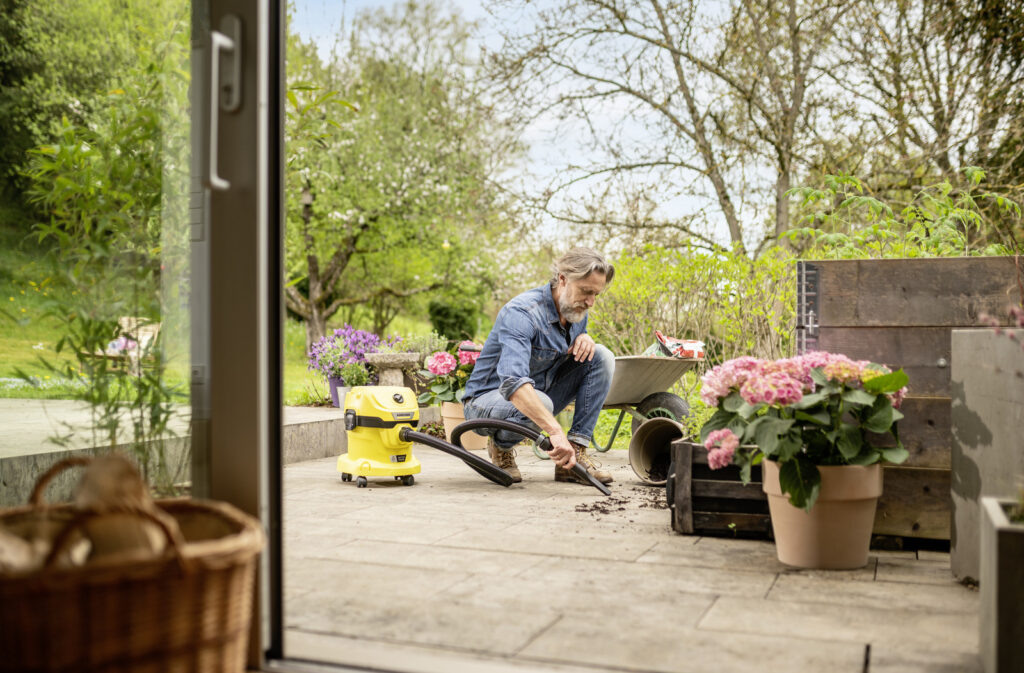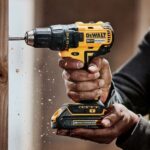Vacuuming might seem like a mundane chore, but it plays a crucial role in maintaining a clean and healthy home. You may wonder how often you should reach for that vacuum cleaner to keep your living space fresh and free from allergens. The answer isn’t one-size-fits-all; it depends on various factors like your lifestyle, the presence of pets, and the type of flooring you have.
Regular vacuuming not only enhances the appearance of your home but also contributes to better indoor air quality. By understanding your specific needs, you can establish a vacuuming routine that works best for you. Let’s dive into the factors that influence how frequently you should vacuum, ensuring your home remains a welcoming sanctuary.
Understanding Vacuuming Frequency
Vacuuming frequency varies based on several factors. By assessing your unique situation, you can establish a routine that suits your home and lifestyle.
Factors Influencing Vacuuming Frequency
- Lifestyle: Busy schedules may lead to less frequent vacuuming. If you have a hectic routine, consider vacuuming every few days to maintain cleanliness.
- Pet Ownership: Homes with pets require more frequent vacuuming. Aim for at least twice a week if you have shedding animals to manage allergens and pet hair accumulation.
- Flooring Type: Different floor types demand different vacuuming frequencies. Hardwood floors may need vacuuming once a week, while carpeted areas benefit from attention two to three times weekly.
- Allergy Sensitivities: Individuals with allergies or asthma should vacuum more often. Regular vacuuming helps reduce dust mites and other allergens, ideally two to three times a week.
- Foot Traffic: High-traffic areas attract more dirt and debris. Vacuum these spaces daily or every other day to keep your home looking its best.
Common Vacuuming Myths
- Myth: You only need to vacuum when you see dirt.
Fact: Dirt and allergens accumulate even when not visible. Regular vacuuming prevents buildup and maintains air quality. - Myth: All vacuums are the same.
Fact: Different vacuums handle specific tasks better. Choose a vacuum based on your flooring and cleaning needs for optimal results. - Myth: Vacuuming daily is excessive.
Fact: Depending on your household dynamics, daily vacuuming might be necessary, especially in homes with pets or children. - Myth: Vacuuming removes all allergens.
Fact: While vacuuming reduces allergens, certain filters and vacuums are more effective. Select a vacuum with HEPA filters for improved allergen capture.
Recommendations for Different Households
Vacuuming frequency adapts to specific household needs. You can find tailored advice for various situations below.
Households with Pets
Own pets? Vacuum two to three times a week to manage pet hair and dander effectively. Focus on high-traffic areas and spots where pets rest. For more effective results, consider using a vacuum designed for pet hair, which often includes specialized attachments. If your pets shed heavily or if they play outdoors frequently, daily vacuuming might be necessary to keep allergens minimized.
Households with Allergies
Suffer from allergies? Vacuum at least two to three times a week to reduce dust mites and other allergens. Utilize a vacuum equipped with a HEPA filter to capture tiny particles. Pay special attention to areas where dust collects, such as carpets, rugs, and upholstery. Regular vacuuming helps maintain a healthier indoor environment, providing relief from allergy symptoms.
Seasonal Considerations
Seasonal changes affect how frequently you vacuum. Adjusting your vacuuming routine throughout the year can maintain a cleaner and healthier home environment.
Spring Cleaning
Spring cleaning often prompts deeper cleaning, which includes increased vacuuming. During this season, you should vacuum at least once a week to remove dust, pollen, and debris that accumulate from open windows and outdoor activities. Focus on carpets and rugs, as they typically trap allergens. Vacuuming before and after home maintenance tasks, like gardening or landscaping, helps keep indoor air quality high by minimizing outdoor allergens.
Winter Maintenance
Winter introduces unique challenges like increased dust and debris from outdoor wear. You should vacuum at least once a week during this season to combat allergens and maintain cleanliness. High-traffic areas may require more frequent attention since winter gear, such as boots and coats, brings in dirt and moisture. Consider using a vacuum with a HEPA filter, which will efficiently capture particles and improve indoor air quality. Regular vacuuming prevents dust accumulation and keeps your home feeling fresh during the colder months.
Choosing the Right Vacuum
Selecting the right vacuum enhances cleaning efficiency and suits your specific needs. Different types of vacuums cater to various tasks and preferences, ensuring optimal home maintenance.
Types of Vacuums for Different Needs
- Upright Vacuums: Ideal for carpets, upright vacuums provide powerful suction and often come with additional tools for versatility. These are suitable for larger areas and high-traffic spots.
- Canister Vacuums: Canister vacuums offer maneuverability and are effective for both carpets and hard floors. They typically include attachments for upholstery and tight spaces, making them versatile for multiple surfaces.
- Robotic Vacuums: Robotic vacuums automate cleaning routines. While convenient for daily maintenance, they may not provide deep cleaning, particularly in high-pile carpets.
- Handheld Vacuums: Perfect for quick cleanups and tight spaces, handheld vacuums serve well for small messes and pet hair. They are generally portable and easy to store.
- Stick Vacuums: Stick vacuums combine lightweight design with convenience. They’re excellent for quick cleaning sessions on hard floors and low-pile carpets, making them a practical option for busy households.
Key Features to Consider
- Suction Power: Look for vacuums with adjustable suction settings, allowing for effective cleaning on various surfaces. Higher suction power enhances dirt and allergen removal.
- Filtration System: HEPA filters capture allergens and particulates, making them essential for allergy sufferers. Ensure the vacuum you choose has this feature for better air quality.
- Capacity: Consider the dirt container capacity, especially for larger homes. Vacuums with larger containers require less frequent emptying, providing uninterrupted cleaning sessions.
- Corded vs. Cordless: Corded vacuums generally offer more power and extended cleaning time, while cordless vacuums provide mobility. Evaluate your cleaning needs to determine the best fit.
- Weight and Maneuverability: Lightweight vacuums are easier to carry and use. Choose a model that’s easy to maneuver around furniture and different rooms.
By understanding your specific cleaning needs and prioritizing essential features, you can select the right vacuum to maintain a clean and allergen-free home.
Conclusion
Finding the right vacuuming routine is essential for a clean and healthy home. By considering your lifestyle and specific needs you can tailor your vacuuming frequency to suit your environment. Regular vacuuming not only enhances the appearance of your space but also significantly improves indoor air quality.
Whether you have pets allergies or simply want to maintain a fresh living area adjusting your routine can make a noticeable difference. Remember to choose the right vacuum for your needs to maximize efficiency. With the right approach you’ll create a cleaner home that supports your family’s health and well-being.

Hi, I’m Md Rofiqul, a gardening enthusiast who loves spending time in the garden and backyard. I enjoy caring for plants, growing flowers and vegetables, and creating a green space that feels peaceful and refreshing. Gardening is more than just a hobby, it’s a passion that connects me to nature and brings joy to my daily life. Living with plants inspires me to embrace simplicity, patience, and sustainability while making every day more colorful and rewarding.

